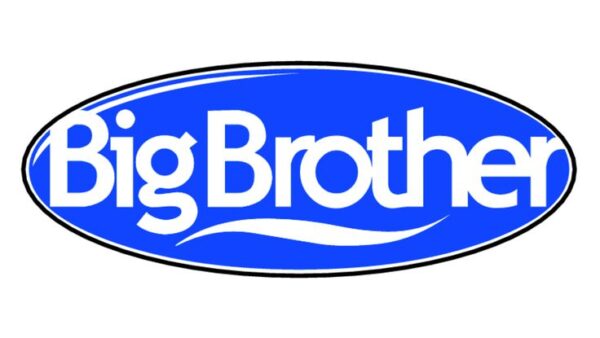Coffee effects – The elixir of productivity and the aroma that greets many of us each morning. For countless people, the day doesn’t truly begin until they’ve had that first cup of joe. Coffee is one of the most popular beverages in the world, with billions of cups consumed every day. Many people rely on coffee to wake them up, keep them alert, and boost their mood. But is coffee really good for you? And what are the effects of drinking coffee on an empty stomach? In this article, we will explore the positive and negative impacts of taking coffee in the morning without eating breakfast.
The Good

Coffee has many health benefits, thanks to its rich content of antioxidants, polyphenols, and caffeine. Some of the advantages of drinking coffee are:
- It may lower your risk of certain diseases. Studies have shown that coffee drinkers have a lower risk of type 2 diabetes, heart disease, liver and endometrial cancers, Parkinson’s disease, and depression. It may also protect against Alzheimer’s and dementia by enhancing cognitive function and memory.
- It may help you lose weight. Coffee can increase your metabolism and fat burning by stimulating thermogenesis and lipolysis. It can also suppress your appetite and reduce your calorie intake.
- It may improve your physical performance. Coffee can enhance your endurance, strength, and power by stimulating the release of adrenaline and dopamine. It can also reduce muscle pain and fatigue by blocking the effects of adenosine, a neurotransmitter that causes drowsiness.
- Immediate Enery Boostg: One of the most appealing aspects of having coffee in the morning is the instant energy boost it provides. Caffeine, the primary active component in coffee, stimulates the central nervous system, increasing alertness and focus. This can be particularly helpful for those early morning meetings or when tackling a demanding to-do list.
- Appetitte Suppresion: For some, having coffee in the morning may lead to appetite suppression. This can be advantageous for those trying to control their calorie intake or adhere to intermittent fasting schedules.
The Bad

However, coffee is not without its drawbacks. Some of the disadvantages of drinking coffee are:
- It may cause anxiety, insomnia, and irritability. Too much caffeine can overstimulate your nervous system and cause unpleasant side effects such as jitteriness, nervousness, restlessness, insomnia, and irritability. These effects can be worse if you drink coffee on an empty stomach, as caffeine can quickly enter your bloodstream without food to slow it down.
- It may increase your blood pressure and heart rate. Caffeine can constrict your blood vessels and raise your blood pressure and heart rate. This can be harmful if you have hypertension or cardiovascular problems. Drinking coffee on an empty stomach can also worsen these effects by increasing the acidity of your stomach and triggering the release of stress hormones.
- It may interfere with your nutrient absorption. Coffee can reduce your absorption of some minerals and vitamins, such as iron, calcium, magnesium, zinc, and B vitamins. This can lead to deficiencies and health problems if you don’t consume enough of these nutrients from other sources. Drinking coffee on an empty stomach can also increase the risk of gastritis, ulcers, and acid reflux by irritating your stomach lining.
The Ugly

So, what is the verdict? Is coffee good or bad for you? The answer is: it depends. Coffee can have both positive and negative effects on your health, depending on how much you drink, when you drink it, and what you eat with it. Here are some tips to enjoy your coffee without harming your health:
- Moderate your intake. The Mayo Clinic recommends limiting your caffeine intake to no more than 400 milligrams per day, which is equivalent to about four cups of brewed coffee. However, this amount may vary depending on your individual tolerance and sensitivity to caffeine.
- Drink it after breakfast. To avoid the negative effects of drinking coffee on an empty stomach, it is better to have it after eating a balanced breakfast that contains protein, fiber, and healthy fats. This will help slow down the absorption of caffeine and prevent spikes in blood sugar and insulin levels.
- Choose filtered coffee. Filtered coffee is brewed with a paper filter that removes some of the compounds that can raise your cholesterol levels and increase inflammation in your body. Unfiltered coffee, such as espresso or French press, contains more of these compounds and may pose more health risks.
- Avoid adding too much cream or sugar. Cream or sugar can add extra calories and fat to your coffee and negate some of its health benefits. If you need to sweeten or lighten your coffee, opt for low-fat milk or plant-based alternatives, such as almond or soy milk, and natural sweeteners, such as honey or stevia.
Coffee is a complex beverage that has both pros and cons for your health. Drinking coffee in moderation can provide you with many benefits, such as lowering your risk of certain diseases, helping you lose weight, and improving your physical performance. However, drinking too much coffee or drinking it on an empty stomach can cause adverse effects, such as anxiety, insomnia, irritability, high blood pressure, heart rate, and nutrient malabsorption.
The key is to find the right balance for yourself and enjoy your coffee responsibly. And don’t forget to drink plenty of water to stay hydrated and flush out the toxins from your body.
1. Do you take your coffee before or after eating breakfast?
This is a personal preference and largely depends on how your body reacts to coffee. If you experience digestive discomfort or blood sugar fluctuations when having coffee before breakfast, it might be better to wait until after your meal. On the other hand, if you benefit from the instant energy and appetite suppression, having coffee before breakfast could be your routine of choice.
2. Can you start your day without coffee?
For some, starting the day without coffee seems unimaginable. Coffee is deeply ingrained in our daily rituals and can become a comforting habit. However, it’s essential to listen to your body. If you find that you’re overly reliant on coffee to function in the morning, it might be worth exploring other ways to boost your energy naturally, such as getting enough sleep or incorporating morning exercise.
3. How many cups of coffee do you take in a day?
The ideal number of daily coffee cups varies from person to person. Generally, moderate coffee consumption (about 3-4 cups per day) is considered safe for most individuals. However, it’s crucial to pay attention to how your body responds to caffeine. If you experience jitteriness, anxiety, or sleep disturbances, it may be a sign that you’re consuming too much. Adjust your intake accordingly to maintain a healthy balance.
—-
In the morning coffee debate of before or after breakfast, there is no one-size-fits-all answer. It largely depends on your personal preferences and how your body reacts to caffeine. While coffee can provide an immediate energy boost and enhance mood, it may also lead to digestive discomfort and blood sugar fluctuations when consumed on an empty stomach. It’s essential to strike a balance that works for you and your body’s needs.
So, whether you’re Team Pre-Breakfast Coffee or Team Post-Breakfast Coffee, remember that the key is moderation and listening to your body’s cues. After all, the perfect cup of coffee is the one that kickstarts your day on the right note – however and whenever you choose to enjoy it.



